Looking to achieve a bigger, rounder, and firmer butt? You’re not alone! A shapely derriere has become a highly desired physical attribute in recent years, with many women and even men seeking ways to enhance their buttocks.
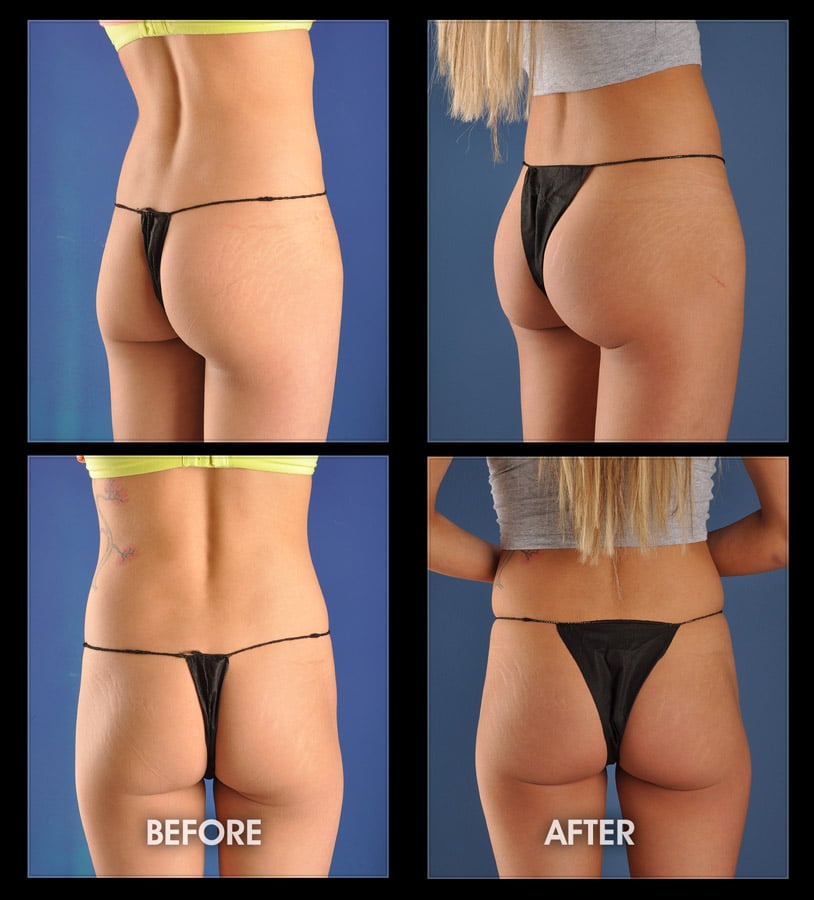
While there are surgical options available, there are also natural ways to get a Brazilian butt lift that is safe, effective, and affordable. In this article, we’ll explore various methods for getting a butt enlargement and provide tips on incorporating them into your daily routine. So, say hello to a curvier and more confident you!
READ ALSO: I did butt enlargement worth over N6m because of man – Nigerian lady confesses
Different Types of Butt Enlargement
There are several different options for butt enlargement or enhancement, including:
1. Brazilian Butt Lift (BBL)

This surgical procedure involves liposuction to remove fat from areas of the body and then transfer the fat to the buttocks to increase volume and improve contour.
FIND OUT: Who is the Ugliest Person in the World
2. Butt implants

This surgical procedure involves inserting silicone or saline implants into the buttocks to increase volume and improve shape.
RELATED POST: Desperate for love — Short man undergoes multiple leg surgeries to boost height, blames women for rejection
3. Sculptra injections
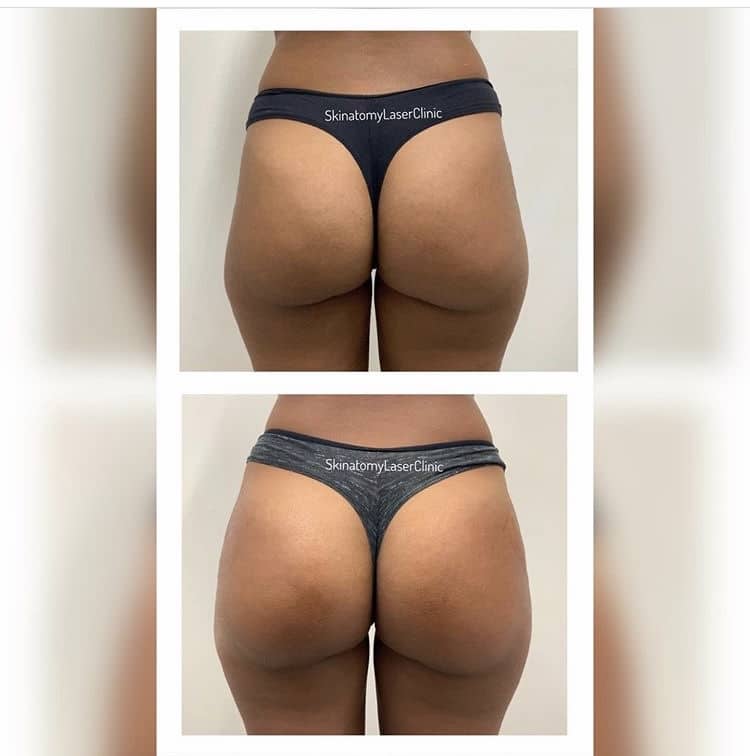
This non-surgical procedure involves injecting Sculptra, a biocompatible substance, into the buttocks to stimulate collagen production and add volume over time.
READ ALSO: Posture Power: Unlocking the Key to Pain-Free Living
4. Hyaluronic acid fillers
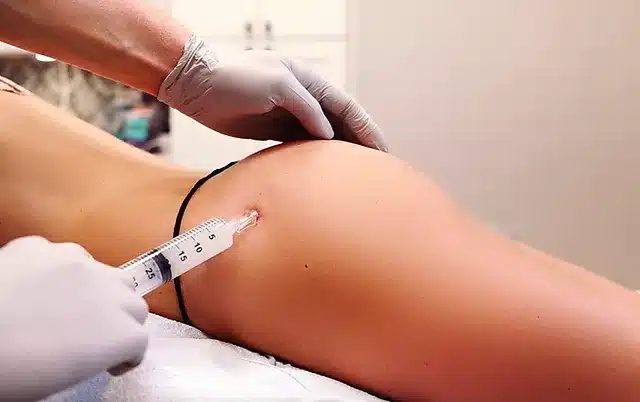
This non-surgical procedure involves injecting hyaluronic acid fillers, such as Juvederm or Restylane, into the buttocks to add volume and improve shape.
RELATED POST: It’s difficult to experience true love because of my coke bottle shape – Curvy lady cries out
5. Butt lifting exercises

While not a cosmetic procedure, regular exercise that targets the gluteal muscles can help to lift and tone the buttocks, resulting in a more shapely appearance.
It is important to note that these procedures carry risks and potential complications and should only be performed by a qualified and experienced plastic surgeon.
Patients should have a thorough consultation with their surgeon to discuss their goals and expectations and any potential risks and complications associated with the procedure.
They should also have realistic expectations and understand that the results may vary depending on individual factors such as body type, skin elasticity, and overall health.
RELATED POST: Physical Fitness: What it is and Why It is Important
BBL Meaning
BBL, or Brazilian Butt Lift, is a cosmetic surgery procedure that has gained immense popularity recently. It involves enhancing the buttocks’ size, shape, and contour using liposuction and fat grafting.
During a BBL procedure, the surgeon will first perform liposuction on areas of the body with excess fat, such as the hips, thighs, or abdomen. This excess fat is processed and purified before re-injection into the buttocks using special techniques to create a more rounded, lifted, and shapely appearance.

BBL differs from other butt enlargement procedures, such as butt implants, because it uses the patient’s fat rather than synthetic materials. This makes it a safer option with fewer risks of complications, as the body is less likely to reject its own tissue.
Additionally, because the procedure involves removing excess fat from other body areas, it can also help contour and shape these areas, creating a more balanced and proportional overall appearance.
While BBL has become increasingly popular in recent years, it is important to note that it is a major surgical procedure that requires significant skill and expertise to perform safely and effectively.
It is important to choose a board-certified plastic surgeon with experience in performing BBL and to thoroughly discuss your goals, expectations, and potential risks with them before deciding to undergo the procedure.
As with any surgical procedure, BBL carries some risks, such as infection, bleeding, and adverse reactions to anesthesia. It is important to follow all post-operative instructions carefully to minimize these risks and ensure optimal results.
SEE: RIP melons: Lady happily does surgery for reduction of breast
6. The Lift Procedure
In cosmetic surgery, a “lift” procedure refers to a surgical technique that involves lifting and tightening loose or sagging skin and underlying tissues in various areas of the body to improve their appearance. There are several types of lift procedures, each designed to address specific concerns in different body areas.
For example, a facelift is a lift procedure focusing on the face and neck, while a breast lift is designed to lift and reshape sagging breasts. Similarly, a thigh lift targets loose skin and excess fat in the thighs, while an arm lift tightens and contours the upper arms.

The lift procedure generally involves making incisions in the targeted area, removing excess skin and tissue, and tightening and repositioning the remaining tissue to create a more youthful and lifted appearance.
Depending on the procedure, the surgeon may use sutures, skin adhesives, or other techniques to support the underlying tissue and maintain the new contours.
Like any surgical procedure, lift procedures carry some risks, including bleeding, infection, scarring, and adverse reactions to anesthesia. It is important to choose a qualified and experienced plastic surgeon and to carefully consider the potential risks and benefits before deciding to undergo a lift procedure.
While a lift procedure can produce dramatic improvements in the appearance of loose or sagging skin, it is important to maintain a healthy lifestyle and follow a proper skincare routine to ensure long-lasting results.
RELATED POST: She said I looked like a lizard – Nigerian man reveals shocking reason he broke up with his ex-girlfriend
Board-Certified Plastic Surgeons
Board-certified plastic surgeons are medical professionals who have completed rigorous training and certification requirements in plastic and reconstructive surgery. To become board-certified, a plastic surgeon must meet specific educational, training, and ethical standards established by the American Board of Plastic Surgery (ABPS).

To be eligible for certification by the ABPS, a plastic surgeon must first complete an accredited residency program in plastic surgery, which typically takes six to seven years. They must also pass a comprehensive written exam and demonstrate their skills in various surgical procedures through oral and practical exams.
Once board-certified, a plastic surgeon must maintain their certification by participating in ongoing education and training and adhering to ethical standards of practice. Board certification is a mark of excellence and indicates that a surgeon has demonstrated high skill, knowledge, and experience in plastic surgery.
When considering plastic surgery, choosing a board-certified plastic surgeon with experience in the specific procedure you are considering is important. Board certification ensures that the surgeon has met rigorous training and competency standards and is committed to providing safe and effective care.
READ ALSO: Wife with brains: Nigerian married woman living in UK explains how she survives
Blood Vessels
Blood vessels are the tubes or channels through which blood circulates in the body. There are three main types of blood vessels: arteries, veins, and capillaries. Arteries carry oxygenated blood from the heart to the rest of the body, while veins carry deoxygenated blood back to the heart.
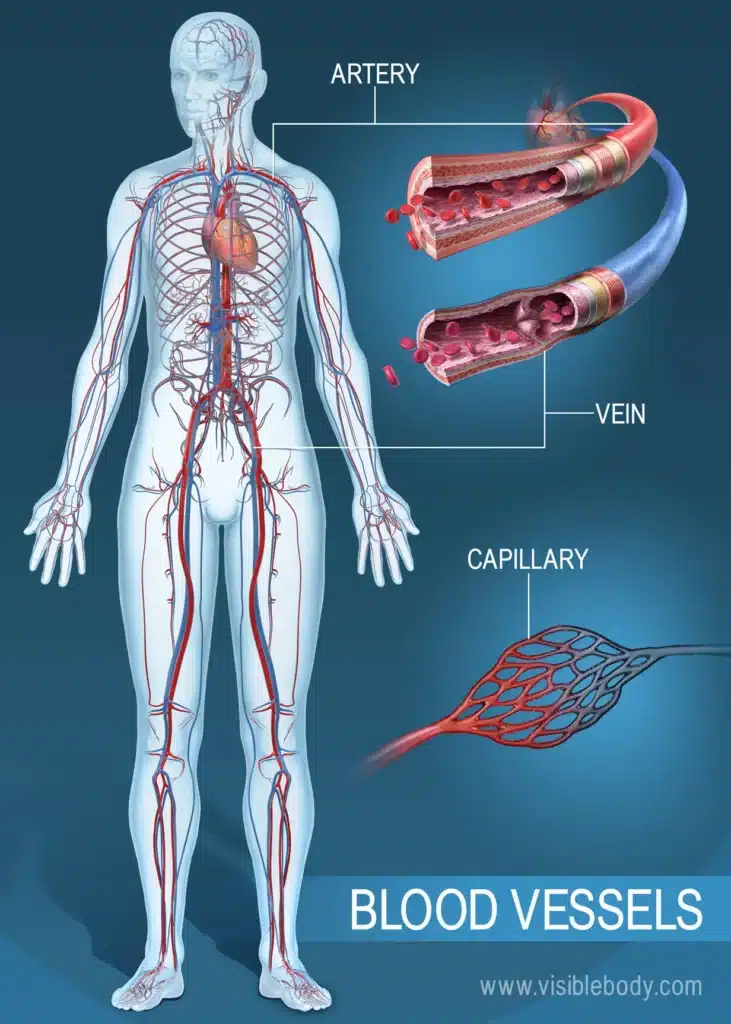
Capillaries are tiny vessels that connect arteries and veins and exchange oxygen, nutrients, and waste products between the blood and surrounding tissues.
Blood vessels are essential to the cardiovascular system, delivering oxygen and nutrients to the body’s tissues and organs and removing waste products. Blood vessels comprise layers of muscle, connective tissue, and endothelial cells, which line the vessel’s interior and help regulate blood flow and pressure.
Various factors can affect the health and function of blood vessels, including lifestyle factors such as diet, exercise, and smoking, as well as underlying medical conditions such as hypertension, diabetes, and heart disease.
When blood vessels become damaged or diseased, it can lead to various health problems, including poor circulation, heart attack, stroke, and peripheral artery disease.
Maintaining the health of your blood vessels is important for overall health and can be achieved through a healthy lifestyle, including regular exercise, a balanced diet, and avoiding tobacco use.
Suppose you have a medical condition that affects your blood vessels. In that case, your doctor may recommend lifestyle changes, medication, or other interventions to help manage the condition and reduce your risk of complications.
READ ALSO: Blue Balls: Myth VS Reality
7. Fat Grafting
Fat grafting, also known as fat transfer or lipofilling, is a cosmetic surgical procedure that involves removing fat from one area of the body and transferring it to another to add volume, contour, or improve the area’s appearance.
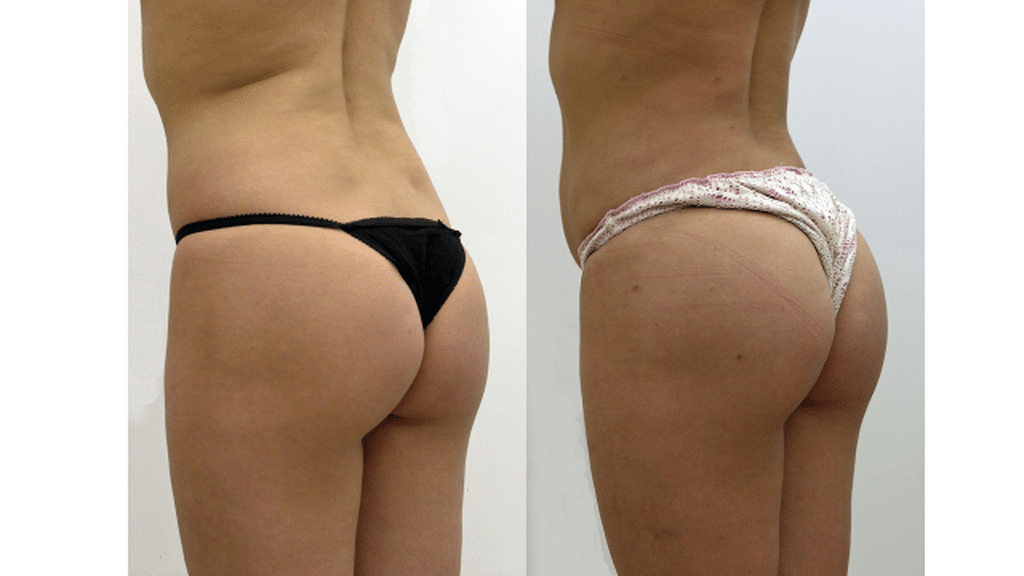
The procedure typically involves the following steps:
- Harvesting: The surgeon uses liposuction to remove fat from body areas such as the abdomen, hips, or thighs.
- Processing: The harvested fat is purified and processed to remove excess fluids and impurities.
- Injection: The purified fat is injected into the desired area, such as the breasts, buttocks, or face, to add volume or improve contours.
Fat grafting has become an increasingly popular option for cosmetic enhancement because it offers natural-looking, long-lasting results. The procedure is versatile and can enhance various body areas, including the face, breasts, buttocks, and hands.
While fat grafting is generally considered safe, it is important to choose a qualified and experienced plastic surgeon who thoroughly understands the procedure and the potential risks and benefits. Complications can include infection, bleeding, asymmetry, and uneven or lumpy results.
Recovery time after fat grafting varies depending on the extent of the procedure and the area of the body involved. In general, patients can expect some swelling and bruising for a few days or weeks following the procedure, but most can return to work and other activities within a week or two.
RELATED POST: Sexy butt photos of Reality TV star, Khloe, go viral online (see photos)
8. Cosmetic Procedure
A cosmetic procedure is any medical or surgical intervention performed to improve or enhance a person’s physical appearance. Cosmetic procedures may be performed on various body areas, including the face, breasts, abdomen, buttocks, and thighs, among others.

There are many cosmetic procedures, ranging from non-invasive treatments such as chemical peels, injectables, and laser therapy, to more invasive procedures such as liposuction, breast augmentation, and facelifts. Some of the most common cosmetic procedures include:
- Breast augmentation
- Liposuction
- Facelifts
- Tummy tucks
- Rhinoplasty (nose job)
- Eyelid surgery (blepharoplasty)
- Botox and dermal fillers
- Chemical peels and laser resurfacing
Cosmetic procedures are typically elective, meaning they are not medically necessary but are chosen by the patient for personal reasons. While cosmetic procedures are generally safe, they carry some risks, including infection, bleeding, scarring, and dissatisfaction with the results.
Choosing a qualified and experienced plastic surgeon who can help you achieve your desired results while minimizing the risk of complications is important.
Before undergoing a cosmetic procedure, it is important to have a consultation with your surgeon to discuss your goals and expectations and any potential risks and complications associated with the procedure.
It is also essential to have realistic expectations and to understand that while cosmetic procedures can enhance your appearance, they cannot change your underlying genetics or ageing process.
READ ALSO: Tiger Woods, 47, undergoes successful ankle surgery
9. Plastic Surgery
Plastic surgery is a surgical specialty dedicated to reconstructing, restoring, and enhancing various body parts. The primary goal of plastic surgery is to improve a person’s appearance like getting a butt enlargement but it can also be used to correct defects, injuries, or medical conditions.

Plastic surgery can be classified into two main categories: reconstructive and cosmetic. Reconstructive plastic surgery is typically performed to repair or restore function to parts of the body affected by congenital disabilities, trauma, or disease.
Examples of reconstructive plastic surgery procedures include breast reconstruction after mastectomy, cleft lip and palate repair, and skin grafting.
On the other hand, cosmetic plastic surgery is performed to improve a person’s appearance or enhance their aesthetic features. Common cosmetic plastic surgery procedures include breast augmentation, facelifts, rhinoplasty, and liposuction.
Plastic surgery requires a high level of skill and expertise and should only be performed by board-certified plastic surgeons with extensive field training and experience.
The decision to undergo plastic surgery should not be taken lightly, as it involves certain risks and potential complications, such as infection, bleeding, scarring, and dissatisfaction with the results.
Before undergoing plastic surgery, patients should have a thorough consultation with their surgeon to discuss their goals and expectations and any potential risks and complications associated with the procedure.
It is also essential to have realistic expectations and to understand that plastic surgery can enhance your appearance, but it cannot change your underlying genetics or aging process.
The Brazilian Butt Lift (BBL) is a surgical procedure involving liposuction to remove fat from body areas and then transferring the fat to the buttocks to increase volume and improve contour. BBL has become a popular procedure for individuals who desire fuller, more shapely buttocks (butt enlargement).
READ ALSO:
- Bobrisky twerks, shares massive butt (video)
- We lost another one: Man with big curves and baby face drops jaw with photos
FAQs for Butt Enlargement
What does BBL mean for girls?
Brazilian Butt Lift, commonly referred to as BBL, includes lipo-contouring of the back and waist area, transferring the fat to the buttock. It provides a win-win solution for body contour issues. This is popular for women looking for better proportions and often as part of a Mommy Makeover.
Why is it called BBL?
For some people, shapely buttocks are synonymous with the women of Brazil. To them, the procedure has been named for its goal: the ideal shape as seen in many women of Brazilian or South American heritage.
What is BBL in beauty?
BroadBand Light (BBL™) technology uses the power of intense pulsed light to deliver exceptional results in photorejuvenation therapy. Your provider can treat various skin conditions caused by ageing and sun exposure.
What does BBY mean?
BBY means “Baby.” The abbreviation BBY is typically used with the meaning “Baby” as a slang term for endearment between couples. It is most often used in
Is BBL good or bad?
The bottom—heh—line: Even with the new safety guidelines, a BBL is a major and serious procedure with some potentially deadly risks associated with it, making it more imperative than ever to do your research and choose a well-trained, reputable doctor if you decide to go under the knife.
